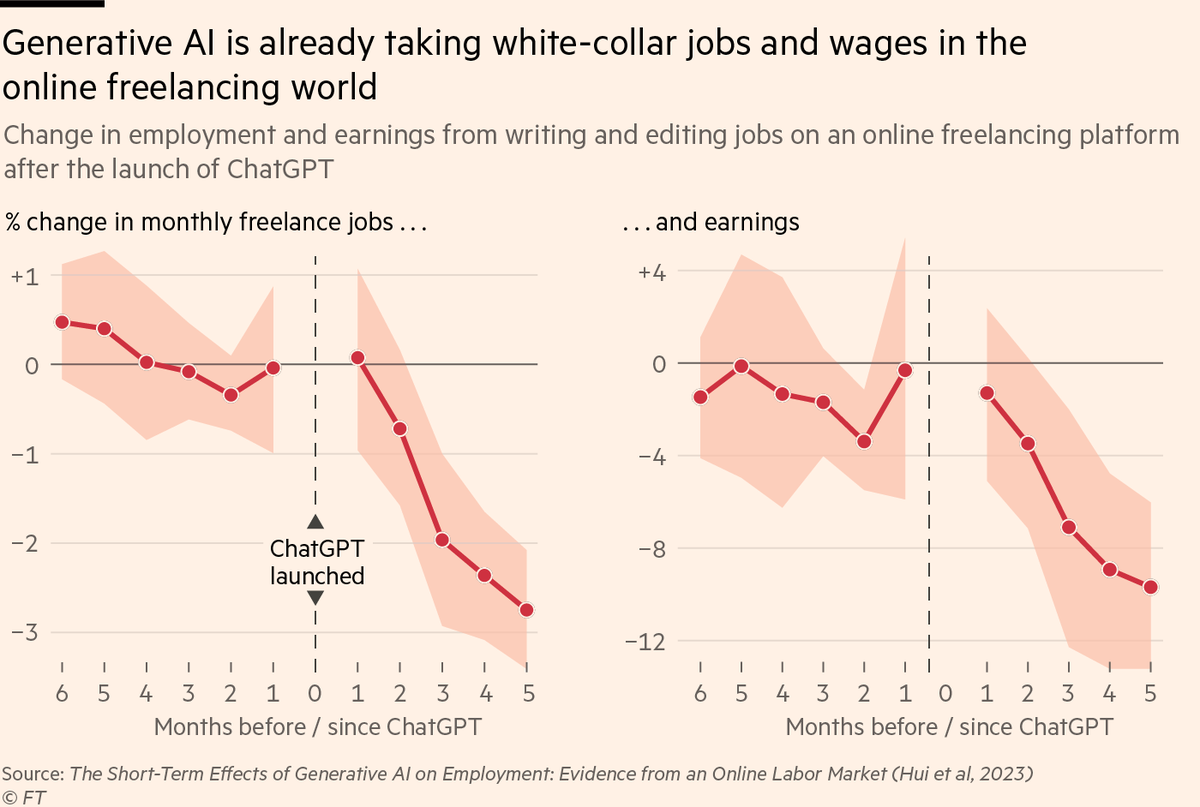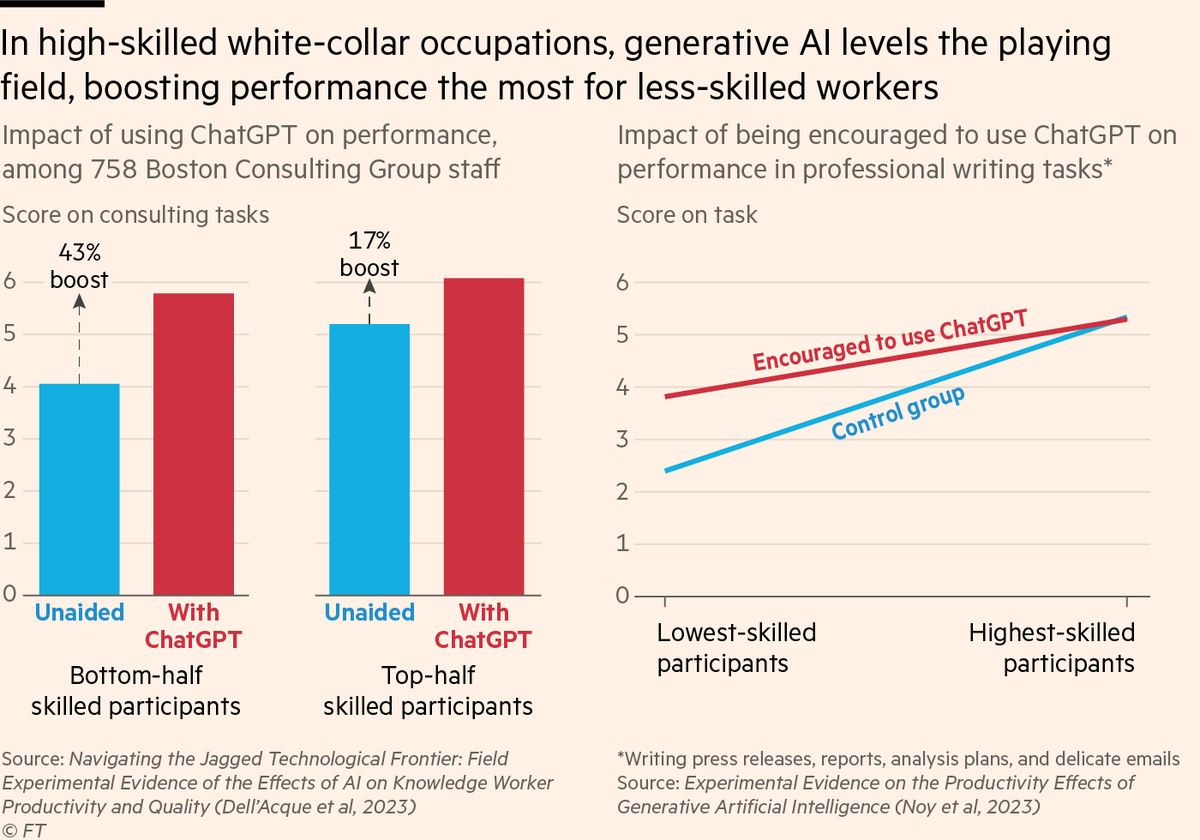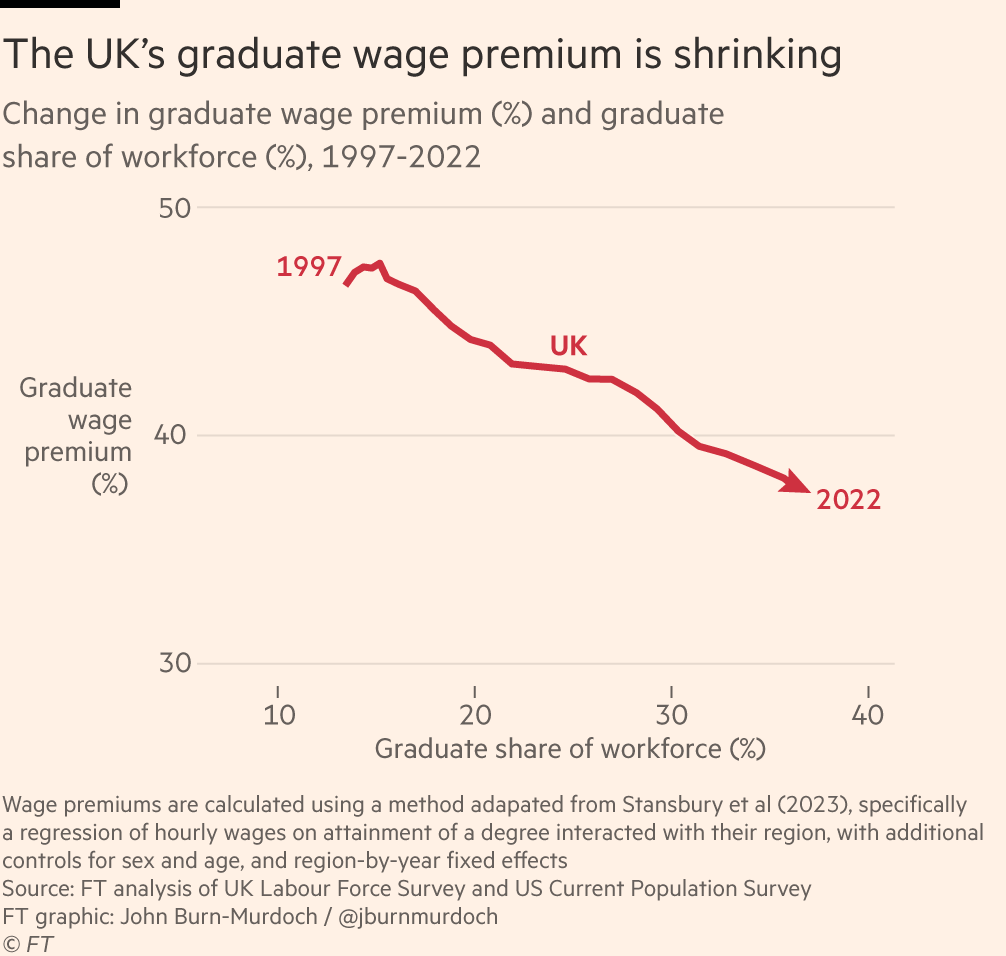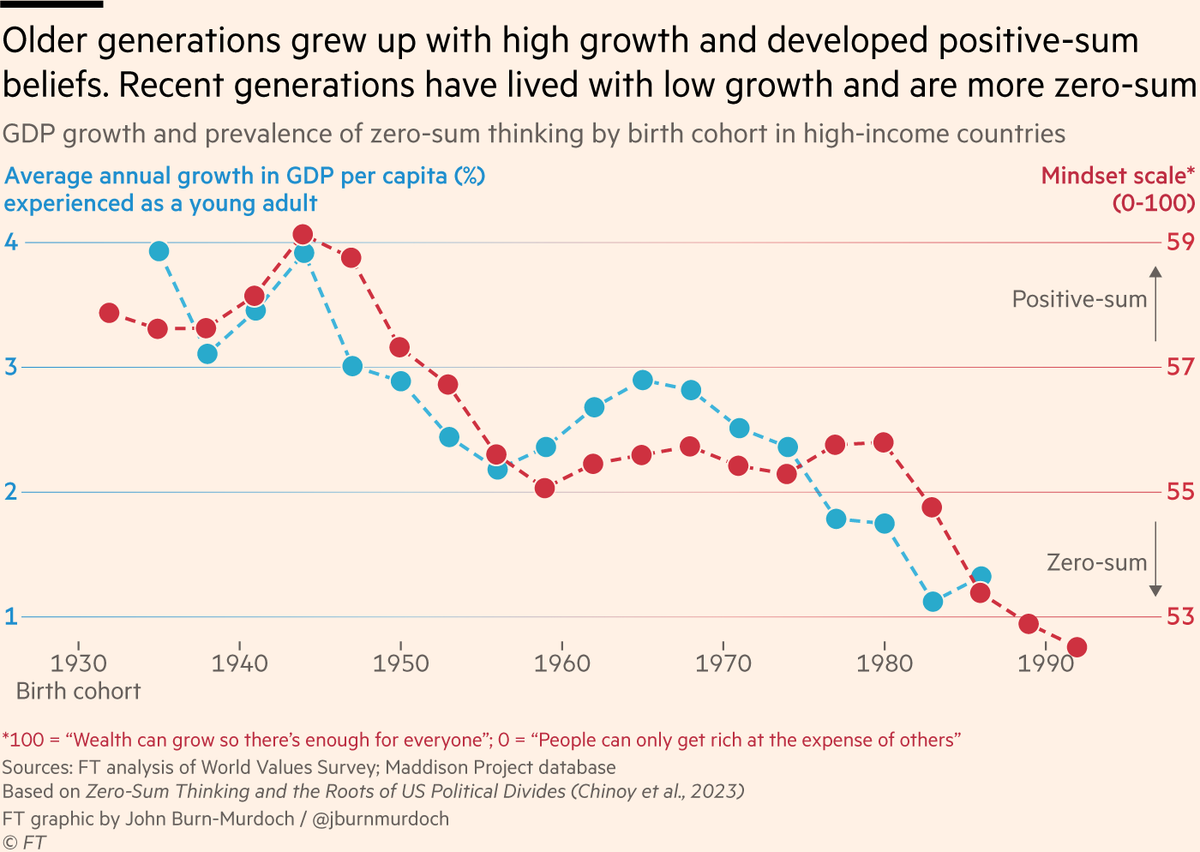NEW: Generative AI is already taking white collar jobs
An ingenious study by @xianghui90 @oren_reshef @Zhou_Yu_AI looked at what happened on a huge online freelancing platform after ChatGPT launched last year.
The answer? Freelancers got fewer jobs, and earned much less
An ingenious study by @xianghui90 @oren_reshef @Zhou_Yu_AI looked at what happened on a huge online freelancing platform after ChatGPT launched last year.
The answer? Freelancers got fewer jobs, and earned much less

The steeper decline in earnings than jobs is particularly striking, because it means that not only is generative AI directly taking away digital freelancers’ work, it’s also devaluing the work that they do still carry out.
Most strikingly, the study also found that freelancers who previously had the highest earnings and completed the most jobs were no less likely to see their employment and earnings decline than other workers. In other words, being more skilled was no shield against disruption.
BUT a big caveat:
The online freelancing market covers a very particular form of white-collar work and of labour market. Digital gig-work is not representative of most knowledge work.
So what do we know about the impact of AI higher up the ranks of the professional class?
The online freelancing market covers a very particular form of white-collar work and of labour market. Digital gig-work is not representative of most knowledge work.
So what do we know about the impact of AI higher up the ranks of the professional class?
There’s been lots of research in this space, but the most fascinating thing I’ve seen was a study from Harvard Business School, where hundreds of management consultants at one of the world’s biggest firms were randomly assigned to either use or not use ChatGPT in their work.
The results were striking.
Productivity shot up. And not only did AI-assisted consultants carry out tasks 25 per cent faster and complete 12 per cent more tasks overall, their work was assessed to be 40 per cent higher in quality than their unassisted peers.
Productivity shot up. And not only did AI-assisted consultants carry out tasks 25 per cent faster and complete 12 per cent more tasks overall, their work was assessed to be 40 per cent higher in quality than their unassisted peers.
The study also found a pattern that is now common in research on the impacts of using generative AI:
The biggest performance gains came among the less highly skilled workers.
The biggest performance gains came among the less highly skilled workers.

This makes intuitive sense: large language models are best understood as excellent regurgitators and summarisers of existing knowledge.
The closer your knowledge already is to that limit, the smaller the benefit from using an LLM.
Generative AI essentially "levels up" skills.
The closer your knowledge already is to that limit, the smaller the benefit from using an LLM.
Generative AI essentially "levels up" skills.
But there was a catch:
On a more nuanced consulting task, which involved analysing and interpreting some data in a non-obvious way that was only clear after a careful reading of qualitative materials, AI-assisted consultants fared worse, because GPT missed those subtleties ⚠️
On a more nuanced consulting task, which involved analysing and interpreting some data in a non-obvious way that was only clear after a careful reading of qualitative materials, AI-assisted consultants fared worse, because GPT missed those subtleties ⚠️
But two groups of consultants managed to avoid that pitfall.
The first — termed “cyborgs” by the study’s authors — completely intertwined their efforts with ChatGPT, constantly moulding, checking and refining its responses. They were in almost constant conversation with AI.
The first — termed “cyborgs” by the study’s authors — completely intertwined their efforts with ChatGPT, constantly moulding, checking and refining its responses. They were in almost constant conversation with AI.
While the second — termed “centaurs” — divided labour, handing off more AI-suited subtasks while focusing on their own areas of expertise. A bit of simple or repetitive data work might be given to ChatGPT, but the consultant took charge of its interpretation, for example.
Taken together, the studies tell us three things.
First, how the use of generative AI is regulated will be key to its impact on jobs.
Online freelancing is about as unregulated a labour market as you will find. Without protections, even knowledge workers are in trouble.
First, how the use of generative AI is regulated will be key to its impact on jobs.
Online freelancing is about as unregulated a labour market as you will find. Without protections, even knowledge workers are in trouble.
Second, the more multi-faceted your job, the less risk of it being automated out of existence.
The gig-worker model of performing one fairly narrow task for multiple clients (even if you perform it exceptionally well) is especially exposed.
The gig-worker model of performing one fairly narrow task for multiple clients (even if you perform it exceptionally well) is especially exposed.
And third, to get the most out of gen AI while avoiding its pitfalls, we should treat it as an extension of ourselves, collaborating closely and checking its outputs as we would our own.
It is not a separate, infallible assistant to whom we can defer or hand over responsibility.
It is not a separate, infallible assistant to whom we can defer or hand over responsibility.
Here’s my column in full (free to read for the first 300 clicks) on.ft.com/3FV0X7k
And here’s a thread from @emollick going into some more detail on the HBS study into AI use by management consultants, and the "cyborgs" and "centaurs"
And here’s the full paper from the study into how the launch of ChatGPT impacted online freelancers on Upwork deliverypdf.ssrn.com/delivery.php?I…
• • •
Missing some Tweet in this thread? You can try to
force a refresh

 Read on Twitter
Read on Twitter











